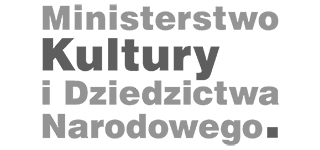I’ve been dealing with creating and conducting different kinds of educational workshops for ten years. During this time I’ve conducted tens of classes with participants of various age groups, that is: students of all educational levels, adults, families, and seniors. Over the years, the topics covered by my workshops resulted from my scientific interests and the needs of the institutions I prepared a given programme for. Often I am able to gain some funds so as to conduct workshops for free. However, it’s not always possible – in such cases, the price is always discussed individually. If you’re interested, feel very welcome to contact me; it’s always worth checking if I’m not working on some project at the moment, or – in the worst case – negotiate a good price!

Who are the workshops dedicated to?
Workshops, conducted with regard to the topics listed below, can be tailored for any age group, from 7 years old to ∞. Each time, their scenario is adjusted to the space of the institution where workshops are to take place. After a prior notification, it’s also possible to adjust the classes to disabled participants‘ needs.

How long do workshops last? How many participants are there in one group?
One workshop lasts 45 or 90 minutes. Obviously, the smaller the group is, the better. Still, there can’t be more than 26-30 participants – it’s the largest possible number for one group.
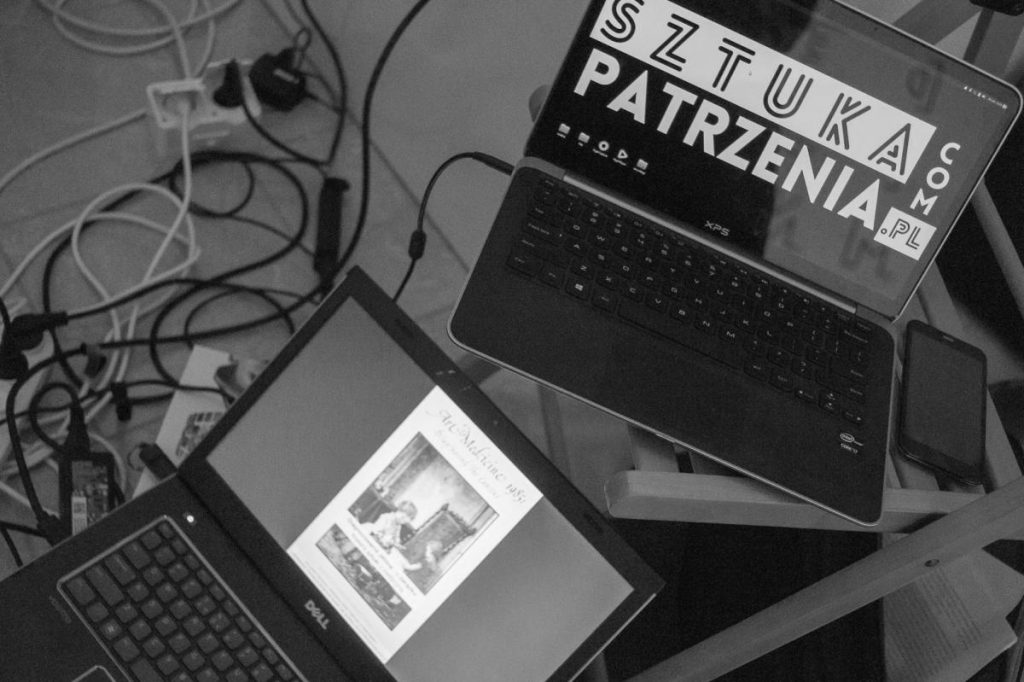
What do I need to conduct workshops?
Depending on the subject, I need different things, but in almost all cases what is definitely necessary incluces multimedia projector, projection screen, chairs and tables. As the organiser, I provide all the special equipment and other tools.
The workshops I’m currently working on and I’m happy to offer include the following topics:
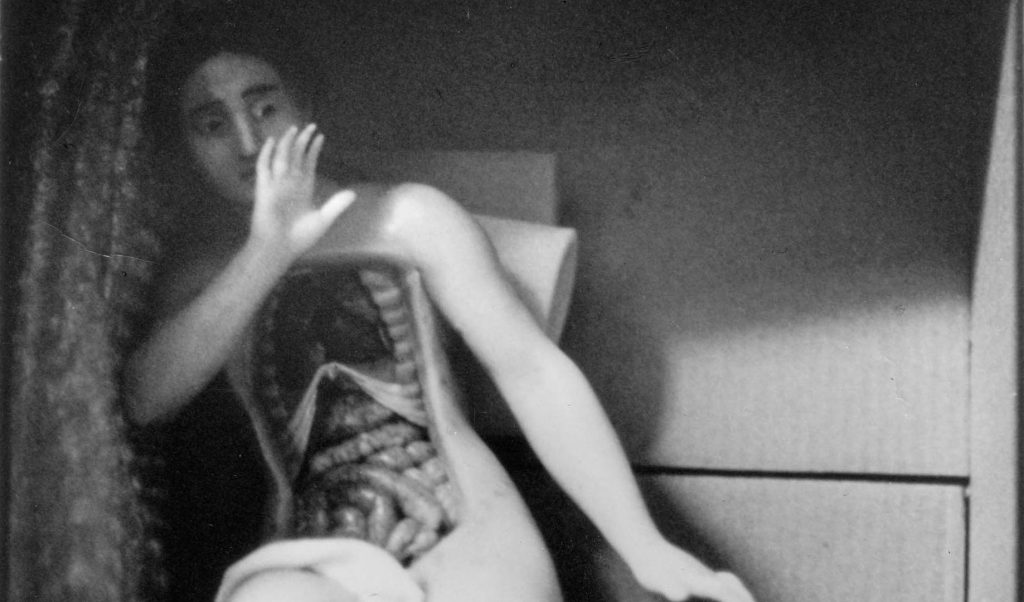
I. Ways of seeing art
Each of us perceives art a bit differently. While some admire it unconditionally, others leave the museum space, thinking: “and that’s it? all this art?“… To get rid of such doubts and understand art better, it’s worth trying to use the so-called art history method, which is not so easy without proper preparation and knowledge. As an art historian, I have specialised in using various ways for interpreting works of art such as paintings, sculpture, architecture, performance etc. My workshops can take place at any instutition holding art collections, or within given interesting architectural and urban realisations.
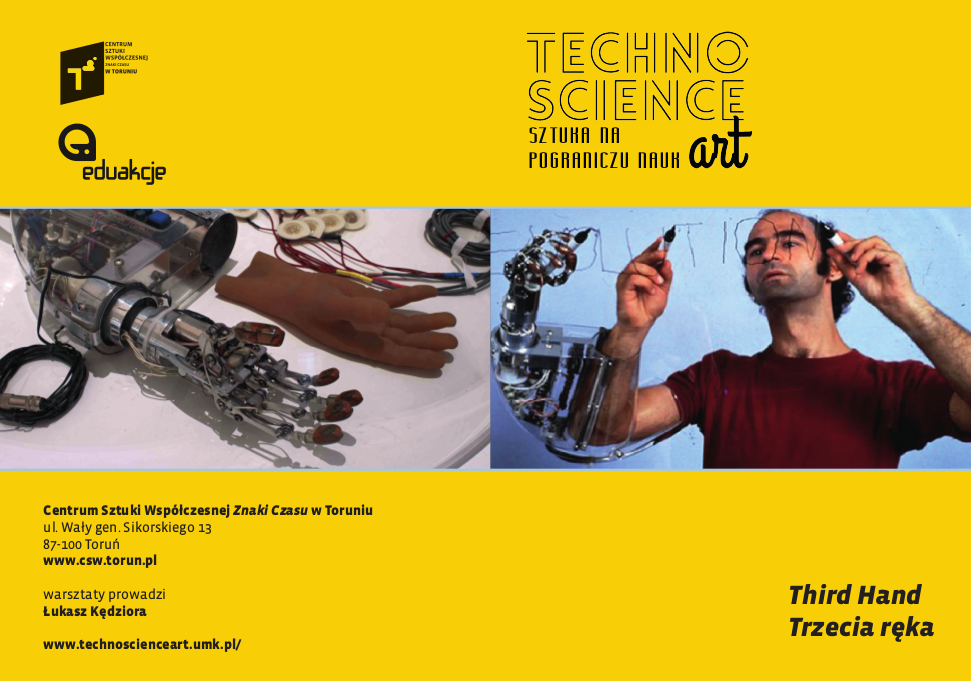
II. Art & technology
Contrary to popular opinion, art, since its very beginnings, has been connected with technology. It has become particularly visible during the last 50 years. That’s why it’s worth trying to confront cybernetic art by Stelarc, genome modifications by Eduardo Kac, or microbiologic art created with bacteria by Anna Dimitriu. During workshops, we recreate some artistic experiments in an interesting and accessible form, depending on age group. Within this topic, I have conducted 51 workshops as part of the Technoscience art – the art on the verge of sciences for as many as 1051 participants!

III. Using biofeedback in art
Undoubtedly, art influences our well-being. Sometimes, while in peaceful church interior, or when watching pictures in a museum, we feel relaxed. At other times, when we look at paintings by Vincent van Gogh, Mark Rothko, or Stanisław Witkiewicz, we experience excitement or fear. Similar feelings may result from tens of images we see every day. Our workshops focus on conducting experiments with Mind Wave Mobile – equipment which indicates the level of concentration and relaxation. Classes can take place at any institution holding art collections.
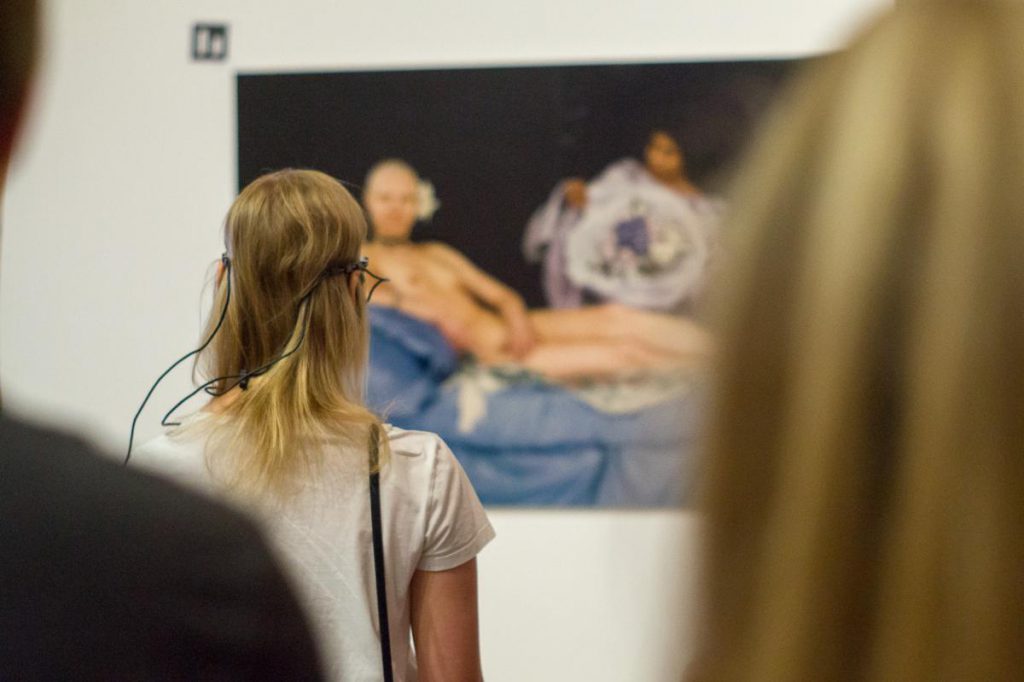
IV. Eye-tracking & art
There’s no doubt that eyesight is one of our most important senses – actually, this is how we gain most information about the world. Artists know this particularly well – not only have they been intentionally guiding our eyesight, but also – just like Władysław Strzemiński – have been interested in the technique of measuring eye movement activity, today known as eye-tracking. The aim of the workshop is to present this method and conduct example experiment(s) concerning particular visual message, e.g. digital reproduction of a work of art, advertisement, dimensional sculpture, or performance. Workshops can take place at any setting, with the use of the equipment I provide.
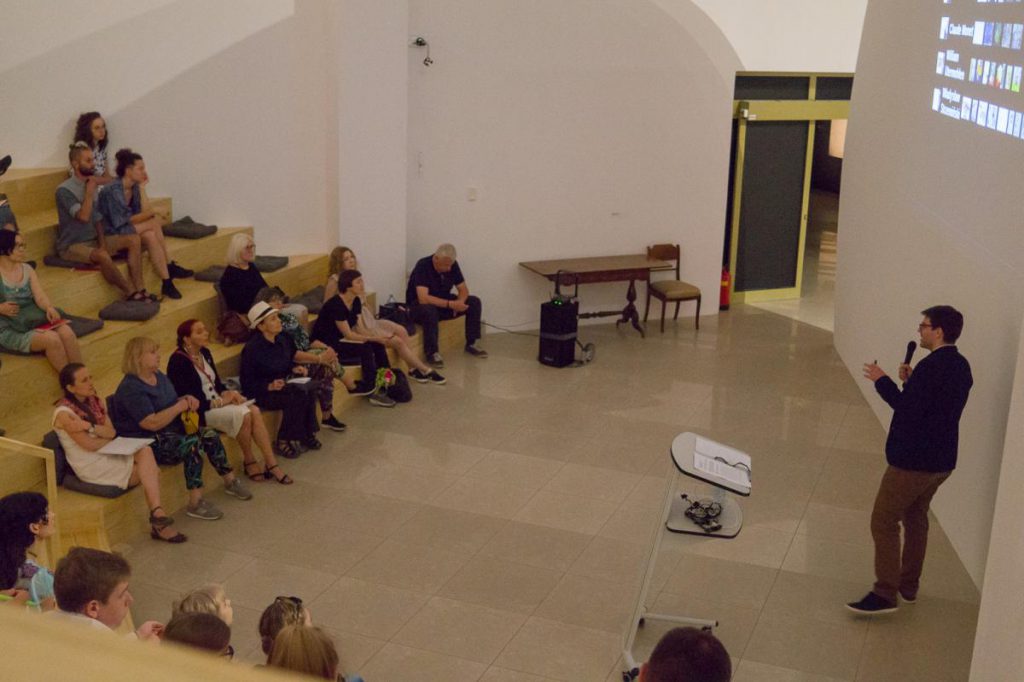
V. Diagnosing the canvas
There are many ways to discover work of art. They include one that refers directly to health condition of both the artist and the viewer. It turns out that the unique style of many artists has been connected with various physiological and mental disfunctions. During workshops we will analyse works of such artists as Egon Schiele, Claude Monet, Wiliam Utermohlen, or Władysław Strzemiński. Thanks to it, we will learn how to diagnose their creations with reference to such disorders as schizophrenia, cataract, cervical dystonia, or Alzheimer’s disease. This fascinating journey can be organised at any place.
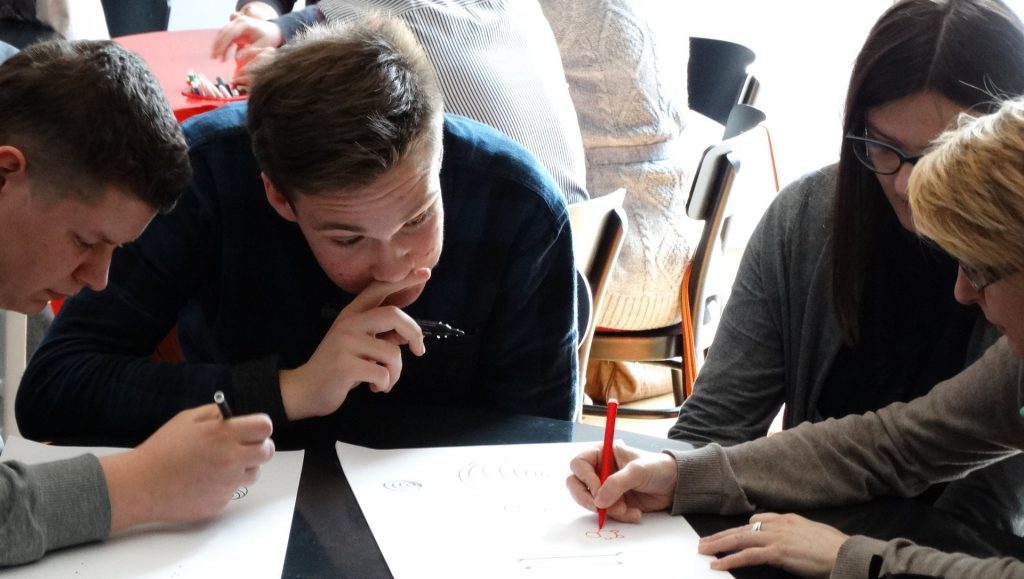
VI. Psychology and physiology of art
Perhaps some art enthusiasts will find it hard to beileve that not all artists are inspired geniuses, depending fully on their intuition. Many of them used to – and still are! – use the well-known mechanisms of our perception, conditioned both by eyesight physical properties, and our psyche. Psychology of art belongs to compulsory subjects at most of Polish art academies. During workshops we will test how some optical illusions work, discuss particular stages of visual information processing track, and create our own visual illusions that might find application in art. The workshops can be conducted at any site.

VII. Emotions and exaggerations in art
If art didn’t evoke emotions, we would probably stop creating it. Although there’s no doubt that we perceive artistic images through the lens of our emotions, we are still not entirely sure how this process is motivated and what it looks like. Why do we often tend to adapt our body position to that of somebody in the picture? These and many other questions – also connected with everyday, common visual phenomena – I will try to answer together with workshop participants. The meetings will focus on the mechanisms of our image perception identified according to neuroaesthetics. The representatives of this discipline try to make us better understand the neural mechanisms of discovering work of art. It’s possible to organise workshops at any location.
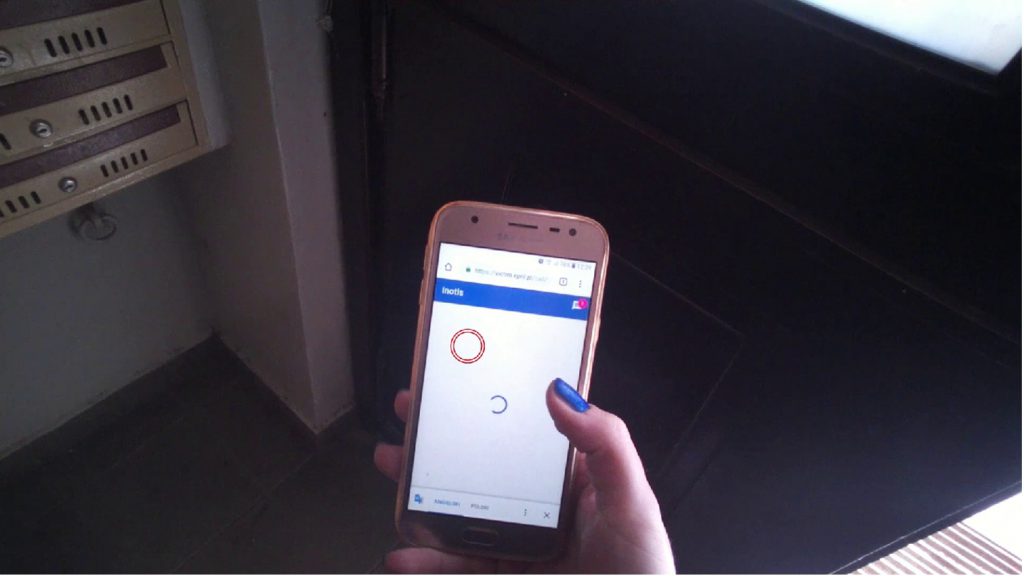
VIII. Neuromarketing & art
Every day we are influenced by an endless number of visual messages. In most cases, their aim is to make us do particular thing, e.g. buy a given object, install new application on our phone, or to focus our attention. In order to achieve this goal, what they use more and more often is neuromarketing. During workshops we will discuss real possibilities offered by this technique in order to influence our decisions. The practical part includes conducting experiment(s) using eye-trackers, tools for electroencephalography (EEG), electromyography (EMG) and skin galvanic response measurement (GSR). Workshops can take place at any location, with the use of the equipment I provide. It’s also possible to conduct this type of workshops with reference to art.
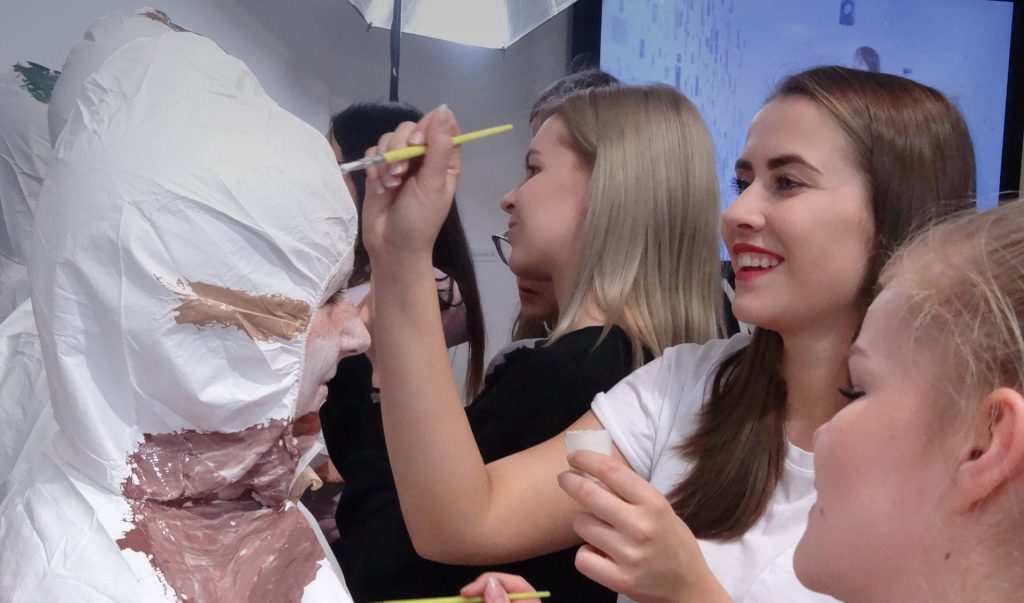
IX. Outdoor & studio photography
Even thouogh I don’t have formal education in photography, it has fascinated me for several years and I still follow this passion until today. Skills in photography and video making have turned out really helpful also while conducting my projects. The workshops cover techniques of digital photography with varied optics at the studio, including equipment such as tripods, continuous lighting & automatic strobe, reflectors, photo umbrellas, backgrounds etc. Another option is outdoor photography workshop, using digital cameras, flashgun lighting, reflectors, mobile continuous lighting. During the meetings we will discuss issues connected with the technique of using equipment, framing, physiology of vision etc. Classes can be completed by creating audio/video materials, together with discussing basic problems connected with such projects, e.g. proper lighting, sound, editing etc. Workshops can be conducted at any location.
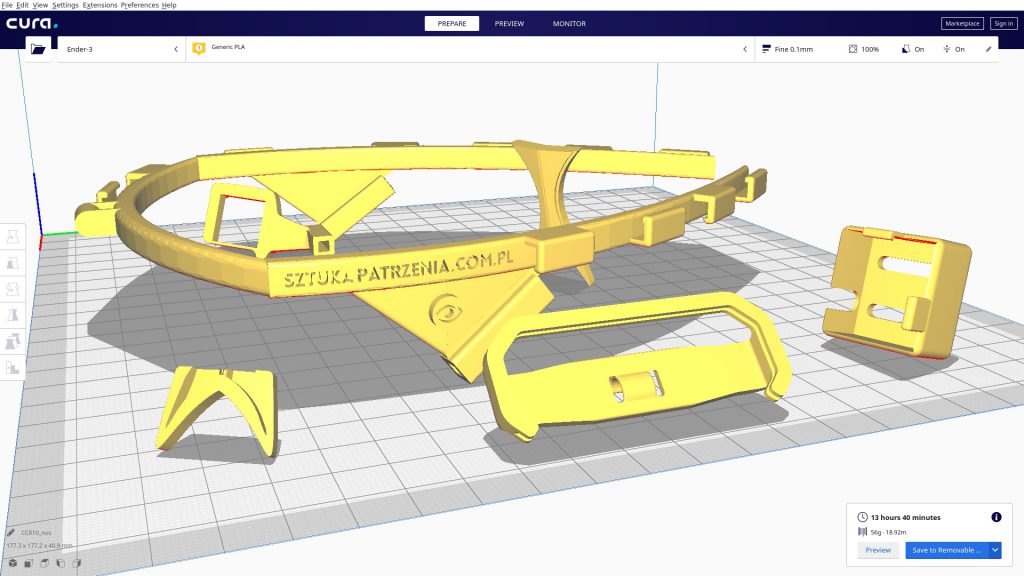
X. 3D printing
So far, my experience in 3D printing is mostly related to designing and printing a mobile eye-tracker, on the basis of the project by Pupil Labs. However, I’m constantly learning and developing new skills in this area. At this stage, during workshops we will discuss various printing techniques, the basics of 3D designing and specification of selected filament types. We will use 3D printer Creality Ender 3, filament PLA Ultra and open-source application FreecCAD. It will be possible for workshops participants to work on their own computers, or equipment provided by the organiser.
So far, I have conducted educational programmes for various cultural & educational institutions and universities. Below you will find a list of selected institutions I have organised workshops for.

Museum of King Jan III’s Palace at Wilanów
(workshops scheduled for 27.09.2019)

National Museum in Kielce
(workshops scheduled for 19-20.09.2019)

TRAFO Trafostacja Sztuki in Szczecin

Educational institutions, including:
School Complex in Chełmża
School Complex in Dobrzejewice
School Complex “Trójka” in Żnin
Elementary School in Ostrowąs
Elementary School in Płonne
Elementary School no 1 in Toruń
Elementary School no 2 in Toruń
Elementary School no 7 in Toruń
Elementary School no 3 in Toruń
Elementary School no 24 in Toruń
Elementary School no 28 in Toruń
Middle School no 1 in Toruń
High School no 7 in Toruń
High School no 18 in Poznań

